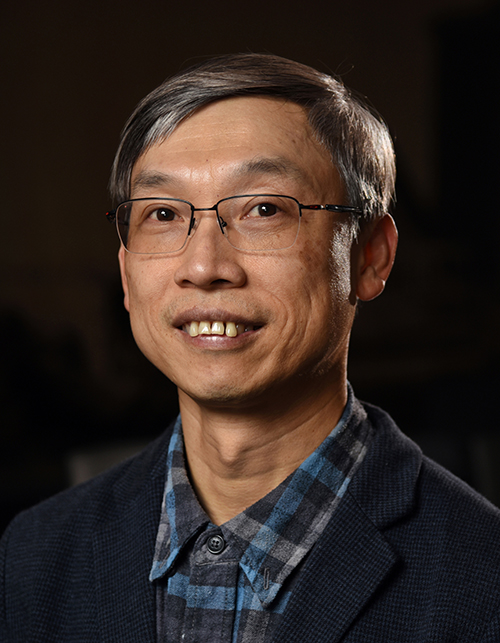Lam-Son Phan Tran, an expert in biotechnology and biological science, has been named a professor with Texas Tech's Department of Plant and Soil Science, according to officials within the College of Agricultural Sciences and Natural Resources. He officially stepped into his new research and teaching post on Sept. 1.

Prior to arriving at Texas Tech, Tran served as unit leader of the Stress Adaptation Research Unit at the RIKEN Center for Sustainable Resource Science in Yokohama, Japan.
Tran will be working within Texas Tech's College of Agricultural Sciences and Natural Resources newest scientific team - the Institute of Genomics for Crop Abiotic Stress Tolerance. Led by Luis Rafael Herrera-Estrella, the high-profile research group will examine how plants adapt to thrive in the presence of environmental stresses, such as extreme heat and cold, drought and in the presence of brackish water sources.
Herrera-Estrella's arrival at Texas Tech was made possible by a $5 million grant from the State of Texas Governor's University Research Initiative (GURI) and matched by the university to bring the best and brightest researchers to Texas.
Tran, a native of Vietnam, indicated that his research program broadly focuses on regulatory network and crosstalk among signaling molecules in plant responses to environmental stresses, as well as translational genomics for improvement of crop productivity in the era of global climate change. His basic and applied research programs will contribute to some of the Sustainable Development Goals of the United Nations, which include maintaining sustainable production of crops for food, biomass and industrial uses.
One of his primary goals here at Tech is to further promote the research on plant functional genomics and regulatory roles of signaling molecules, leading to development of crop cultivars with enhanced environmental stress resistance. Importantly, he wants to pass his knowledge and research experiences to the next generation through teaching and training.
Prior to joining the Tech faculty, Tran served as a head of Plant Stress Research Group at Ton Duc Thang University in Vietnam, visiting professor at the Vietnam Academy of Agricultural Science and visiting scientist at Duy Tan University, Vietnam. He also worked as a senior research scientist in the Soybean Genomics and Biotechnology Laboratory (National Center for Soybean Biotechnology) at the University of Missouri-Columbia; and a special researcher in the Biological Resources Division of the Japan International Research Center for Agricultural Sciences.
His master's (biotechnology) and doctorate (biological science) degrees are from Szent Istvan University (formerly Godollo University of Agricultural Sciences) in Hungary. Tran is a member of the American Society of Plant Biologists and the Japanese Society Plant Physiologists. He is also an elected fellow of the World Academy of Sciences (TWAS) for the advancement of science in developing countries.
The mission of Tech's new institute to conduct and graduate education on the use of functional and population genomics to understand the molecular mechanisms that determine the resilience to adverse environmental stress in crop plants and related wild-species. It aims at integrating an interdisciplinary team of scientists to conduct internationally competitive, multidisciplinary research to study abiotic stress mechanisms to contribute to the development of sustainable agriculture.
GURI was created in 2015 by Gov. Greg Abbott's Office of Economic Development & Tourism and the state legislature to encourage universities to bring the world's top researchers in the areas of science, technology, engineering, mathematics and medicine to Texas. The matching grant program assists institutions of higher learning in Texas with recruiting distinguished researchers, particularly targeting Nobel laureates and members of the NAS, in an effort to further economic and workforce development.
Texas Tech officials convinced the state and the GURI Board of the importance of initiating this research at Texas Tech by demonstrating how the institute will be beneficial both to Texas Tech and the cotton industry, one of the top economic drivers in West Texas. The matching funds were required to originate from somewhere other than government-appropriated funding within the university's overall budget.
Texas Tech's Department of Plant and Soil Science is a comprehensive academic unit, conducting research and offering coursework and programs in several areas of plant and soil science. It has 33 full-time faculty members, and a student body consisting of approximately 180 undergraduate and 114 graduate students. Some of those students are enrolled in CASNR's distance education program.
This story was first published in the CASNR NewsCenter. See the original article here.
